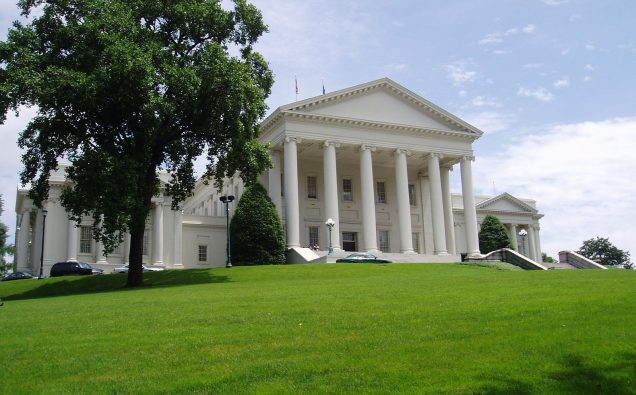
Virginia House Democrats have unveiled new legislation that would allow borrowers to refinance student loan debt, and ease financial pressures on more than 600,00 Virginians.
The move is being seen as an important step toward enabling millennial graduates save money, finance their business ideas and ventures as well as step up economic growth through more home buying activity.
Sponsored by Delegate Marcus Simon (D-Falls Church), the bill would revive the Virginia Education Loan Authority (VELA) and empower the entity to re-finance high-interest student loans.
Under the proposed initiative, an estimated 629,000 Virginians could benefit from re-financing their loans.
“Virginians collectively owe more than $30 billion dollars in student loan debt,” said Delegate Simon, at a press conference held at the State Capitol.
“This is creating a crisis that is hampering our Virginia economy. Interest payments are preventing our young people from buying homes, forming households and making significant purchases. We’ve studied the issue thoroughly. Now is the time for action. I look forward to the support of my colleagues across the aisle for these proposals, which will boost our economy and build our local communities.”
“Graduates of community college, technical school and universities have worked hard to gain the education they need to participate in the New Virginia economy, but too often their debt burden prevents them from ever finding financial success,” said Delegate Charniele Herring (D-Alexandria), House Democratic Caucus Chair. “I call upon members from both sides of the aisle to stand together with our students — they are the future of our economy.”
The proposal to create a Student Loan Debt Refinancing Authority was referred to the State Council on Higher Education in Virginia (SCHEV), Virginia 529 and the Virginia Treasury for further study during the 2016 session.
A year-long study with input from stakeholders across the commonwealth, SCHEV issued a 25-page report summarizing options available to the General Assembly. The report suggested that lawmakers should mitigate risk to the Commonwealth by serving a large pool of borrowers or by working in partnership with private sector lenders to serve a smaller pool of borrowers.
“As a young person still in my first year of college, I fear that the additional debt I take on to complete my degree will affect my ability to be a full participant in the economy,” said Carl Warf, who is a student at Virginia Commonwealth University.
“I thank the House Democratic Caucus for its support of this important bill, and I look forward to its passage.”
Sen. Janet Howell (D-Fairfax) will introduce the Senate version of Simon’s bill.
According to a news release, Delegate Marcia Price (D-Newport News) will introduce an alternative bill that would create a Student Loan Debt Refinance Authority modeled on the existing Small Business Finance Authority. This entity would provide guarantees and gap financing to private sector lenders who might otherwise be unwilling to take on the risk of refinancing student loan debt.
“As one of the few members of the General Assembly who is still in the process of repaying student loans, I’m keenly aware of the impact these loans can have,” said Delegate Price. “The cost of education should not be negatively life-altering. The student loan reforms being proposed are huge for Millennials and the benefits extend to Virginians of all ages. We cannot move forward with a New Virginia Economy when our next generation of leaders comes out of school crippled with debt.”
On January 4, Gov. Terry McAuliffe announced a series of Education and Workforce proposals to further his efforts to create a New Virginia Economy with the creation of an office of Student Loan Ombudsman and adoption of Student Borrower Bill of Rights being among proposals.














